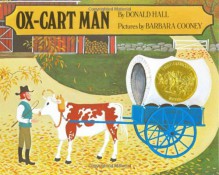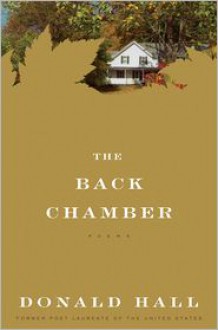
The first "new" book of poetry I read this year was Donald Hall's "Contemporary American Poetry," acquired last fall for a quarter at a garage sale. (Read more about that "haul" here: http://carissagreen50.booklikes.com/post/1838747/book-haul-summer-turns-into-fall.)
The volume is stuffed with canonical poets of the mid-20th century - 39 in total. And, in the Preface to the Second Edition, Hall curiously brags that he included two black poets. Further:
"A few years ago, Karl Shapiro made some remarks about lily-white anthologies which made me angry, for the usual reason one gets angry: because the remarks were accurate. A world of black poetry exists in America alongside the world of white poetry, exactly alike in structure -- with its own publishers, bookstores, magazines, editors, theologists, conferences, poetry readings -- and almost entirely invisible to the white world. Like the rest of the black world. The world of white poetry has practiced the usual genteel apartheid of tokenism: Here is praise for Langston Hughes, here is Pulitzer Prize for Gwendolyn Brooks; now we've done our liberal bit, let's go back to reading "The New York View of Books.
"The world of black poetry seems to be thriving. I find it hard to judge these poems, as if I were trying to exercise my taste in a foreign language, which I am. Here I am printing two poets almost wholly unknown to the white world, Dudley Randall and Etheridge Knight. (I asked LeRoi Jones, who refused.)"
Fifty years later, of course, no liberal thinker would talk thusly about the literary world, so perhaps it is unfair to point out the recently-deceased Mr. Hall's cloddishness here. But man of our our African-American literati would say that there world is not yet fully fair to the merits of their works.
But, truth be told, just as depressing to me as the lack of writers of color in this anthology was the lack of women writers. Four, are included, all canonical: Levertov, Plath, Rich, and Sexton. Four. Four. Four. Ten percent. Not even Elizabeth Bishop made the list. Where are the women poets? They were writing.
In our post Gilbert-and-Gubar world, it's clear that who does the choosing and who is chosen matters. We can look back retrospectively and forgive, but we must not forget, going forward.
-cg

 Log in with Facebook
Log in with Facebook 







